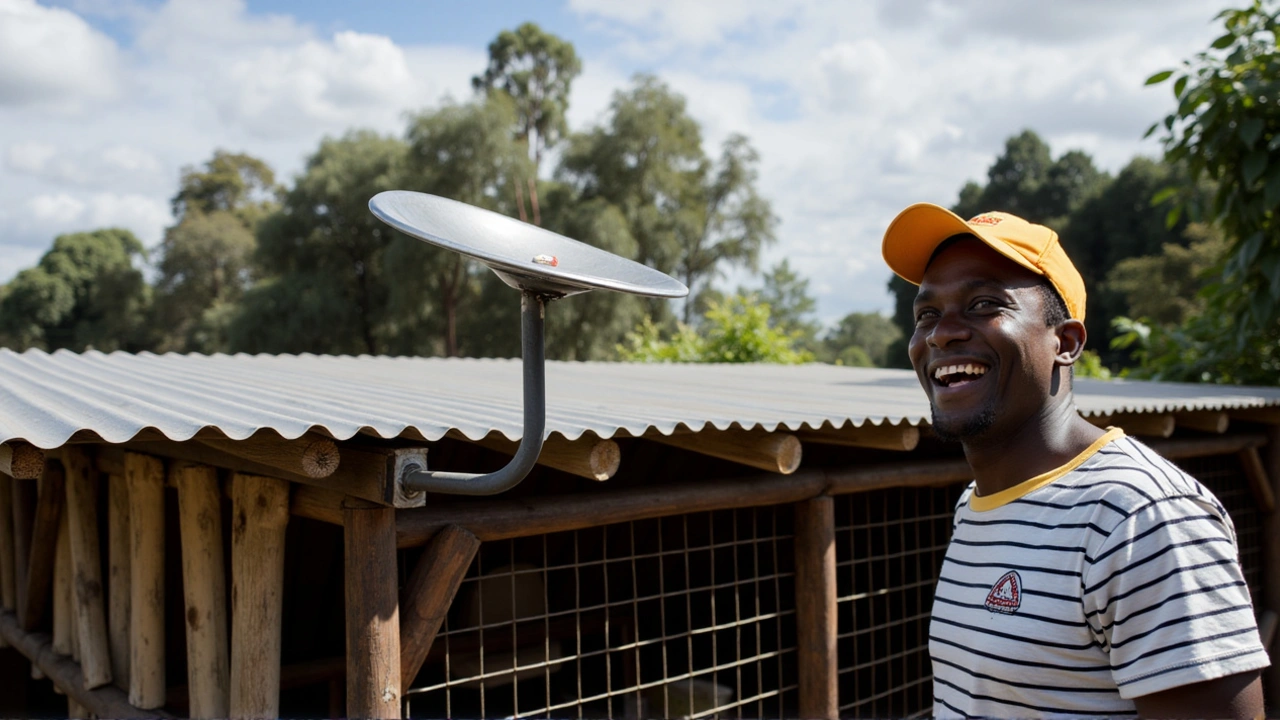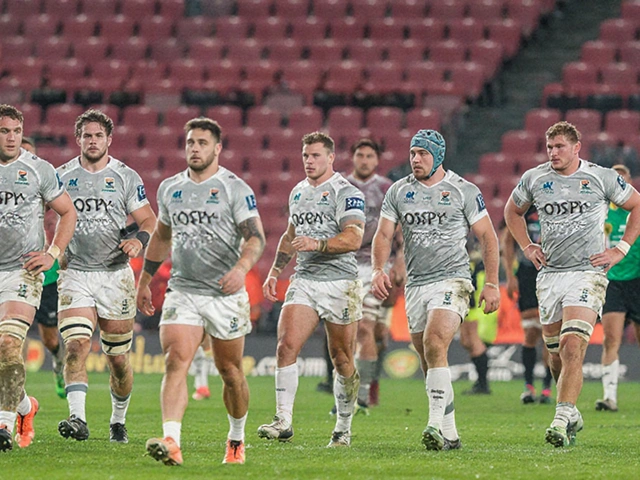Starlink Mini Launches Amid Legal Disputes in Kenya
Starlink Mini has made its debut in Kenya, heralding a new era of high-speed internet accessibility, both for home and mobile users. This significant development follows a wave of discontentment that has culminated in a legal battle spearheaded by Kituo cha Sheria, a Kenyan advocacy group. The organization has filed a lawsuit against Safaricom, the Communications Authority of Kenya (CA), and the Kenya Competition Authority. The crux of the dispute centers on Safaricom's request to oblige satellite internet providers to enter into partnerships with local mobile network operators—a move that, according to Kituo cha Sheria, hinders the ability of Kenyans to access better internet speeds and keeps costs unjustifiably high.
Despite the unfolding legal challenges, Starlink has already gained substantial traction within Kenya. Since its official entry into the Kenyan market in July 2023, the number of Kenyans utilizing satellite internet more than doubled in just three months, leading up to December of the same year. This rapid adoption is evident as at least two county governments in Kenya have integrated their ICT infrastructure with Starlink's satellite services. This shift underscores a growing trend, with Starlink stirring considerable enthusiasm amongst Kenyan consumers.
Market Disruption and Technological Advantages
The entry of Starlink has not been without its effects on the local market. Traditional Internet Service Providers (ISPs) have experienced increasing pressure due to Starlink's competitive pricing and superior speeds. The company, which has launched over 3,000 satellites into low Earth orbit since 2019, boasts the capability to deliver internet speeds surpassing 150 Mbps to virtually any location globally. Initially, the high cost of Starlink's hardware deterred many potential users. However, the company has since introduced a more economical kit rental option for the Kenyan market. This option involves a one-time activation fee coupled with a monthly hardware rental fee, making the service more accessible to a broader audience.
Key voices have emerged in this evolving landscape. Dr. Annette Mbogoh of Kituo cha Sheria vociferously contends that Safaricom's demands are baseless and driven by a desire to maintain market dominance. On the other end of the spectrum, Dr. Irungu Kang'ata, governor of Murang'a County, has extolled the virtues of Starlink. He has highlighted its potential for providing a more viable internet solution compared to traditional providers, noting that Starlink's internet speeds can reach 100 Mbps—significantly higher than the frequently unstable speeds offered by Safaricom.
A Broader Impact
The introduction of Starlink Mini in Kenya is poised to have wide-reaching implications. The high-speed internet capability is particularly beneficial for remote communities and underdeveloped areas where traditional ISPs have struggled to provide adequate service. Furthermore, the flexibility offered by Starlink’s satellite internet can bolster educational initiatives, telemedicine, and small businesses that rely on stable, high-speed connections to function effectively.
In addition to individual consumers, county governments and various public institutions stand to gain significantly from Starlink’s offering. By integrating satellite internet services into their ICT infrastructure, they can enhance their administrative capacities and service delivery, driving development even in the most remote corners of the country.
The Legal Landscape
The legal dispute, however, continues to loom large over this technological advance. Kituo cha Sheria's lawsuit raises fundamental questions about market governance and consumer rights within Kenya's burgeoning internet landscape. The advocacy group’s stance is clear: the insistence on local partnerships for satellite providers is not justifiable and serves primarily to entrench the dominance of established players like Safaricom. They argue that this practice limits consumer choice and stifles competition, ultimately keeping prices high and speeds comparatively lower.
Conversely, Safaricom and supportive authorities argue that such partnerships are necessary for regulatory coherence and infrastructural synchronization. They insist that a united front between local and international providers ensures that Kenya's telecommunications landscape is robust, secure, and sustainable over the long term. This ongoing dialogue between regulatory frameworks and market freedoms will likely shape the trajectory of internet accessibility and quality in Kenya for years to come.
Looking Ahead
As Kenya navigates these choppy waters, the promise of Starlink Mini's reliable high-speed internet is a beacon of hope for many. While the legal landscape remains fractious, the consumer demand for better, more affordable internet continues to grow unabated. The Kenyan people have welcomed Starlink with open arms, and this enthusiasm seems set to influence the broader technological ecosystem in the country.
Should Kituo cha Sheria's lawsuit succeed, it could catalyze a fundamental shift in the regulatory approach to satellite internet provision in Kenya. Such an outcome has the potential not just to democratize internet access but also to foster a more competitive and innovative market landscape. Alternatively, if the incumbent rules are upheld, it will be incumbent upon market players like Starlink to navigate these restrictions creatively while still delivering on their promise of better service and broader access.

Conclusion
In the interim, the arrival of Starlink Mini in Kenya marks a significant milestone in the country’s journey towards digital inclusivity. With its blend of competitive pricing, superior speeds, and expansive reach, Starlink is poised to disrupt the market and enhance the quality of internet access for both urban and rural Kenyans. As legal battles brew and market dynamics shift, one thing remains clear: Kenya’s quest for high-speed, affordable internet has found a powerful ally in Starlink.







JAN SAE
Wow, what an incredible milestone for Kenya!! The arrival of Starlink Mini is a game‑changer for so many remote communities!!! It’s amazing to see high‑speed internet reaching places that were previously left behind, and the impact on education, health, and local businesses could be massive!!! Keep pushing forward, folks!!
Steve Dunkerley
Indeed, the deployment leverages Ka-band frequencies and utilizes inter‑satellite laser links, which dramatically reduces latency. From a regulatory perspective, the spectrum licensing framework should accommodate such cross‑border services without imposing onerous local partnership mandates.
Jasmine Hinds
Starlink is lit 😎 it’ll finally get us online fast!
Madison Neal
Absolutely, the bandwidth aggregation model they use can sustain over 150 Mbps even in high‑interference zones, which is a boon for streaming and tele‑medicine applications.
John Crulz
It’s fascinating how satellite constellations are reshaping telecom markets, especially when traditional ground‑based ISPs struggle with last‑mile connectivity. The hybrid approach could really complement existing infrastructure.
Anita Drake
From a cultural standpoint, broader internet access can help preserve local languages by enabling community‑generated content. It also opens pathways for Kenyan diaspora to stay connected with home.
Eduardo Lopez
The monopoly tactics of incumbent operators are a betrayal of public trust; they cloak greed in the language of regulation while stifling innovation. It is a moral imperative to protect markets from such predatory practices.
Nancy Perez de Lezama
While the concerns are noted, one must consider the necessity of harmonizing spectrum usage to prevent interference; however, the current demands appear disproportionate to the stated safety objectives.
Matt Heitz
Our nation's sovereignty should not be compromised by foreign satellite firms dictating terms to our regulators. It is essential that Kenya asserts control over its digital future, ensuring that any partnership respects our economic independence and prioritizes Kenyan citizens over multinational profit motives.
Susan Mark
From an expert perspective, the technical specs suggest that a balanced policy could allow spectrum sharing while still safeguarding national interests; a collaborative framework might be the most pragmatic solution.
Jason Jennings
Honestly, the whole lawsuit is just a power play; they’re trying to keep prices high and keep everyone dependent on the old system.
Diego Vargas
Yo the facts are clear - Starlink's latncy is way lower than any land based ISP bc of the LEO constllation tech they’re using.
Alex Lee
Just another corporate scheme.
Vida Yamini
It's truly inspiring to watch this digital transformation unfold across Kenya-communities that once struggled with spotty connections are now poised to access reliable, high‑speed internet.
When schools in remote regions can stream interactive lessons, learners gain a foothold in global education.
Healthcare providers, especially those offering tele‑medicine, can now consult specialists without the dreaded lag that previously hindered diagnosis.
Small businesses stand to benefit enormously; e‑commerce platforms become viable, and local artisans can reach international markets.
The government’s integration of Starlink into county ICT frameworks signals a forward‑thinking approach to public service delivery.
Moreover, the competitive pressure on incumbent ISPs may drive price reductions, making connectivity more affordable for the average Kenyan.
From a technical perspective, the utilization of Ka‑band spectrum and low‑earth orbit satellites ensures reduced latency compared to traditional geostationary systems.
In terms of infrastructure, the rental model lowers the entry barrier, allowing users to adopt the service without heavy upfront costs.
Meanwhile, the legal debates surrounding partnership mandates raise important questions about market fairness and consumer choice.
While some argue that local collaborations enhance regulatory oversight, others see them as a tactic to preserve monopoly power.
Striking a balance will be crucial; policymakers must safeguard national interests without stifling innovation.
Academic researchers are already studying the socioeconomic impact, predicting improvements in literacy rates and economic growth.
Investors are taking note, seeing Kenya as a fertile ground for future telecom ventures.
Ultimately, the success of Starlink Mini will depend on continued collaboration among stakeholders, transparent regulation, and a shared commitment to digital inclusion.
Let's keep the conversation constructive and focused on how we can collectively ensure that this technology serves every Kenyan, from bustling Nairobi to the most isolated villages.